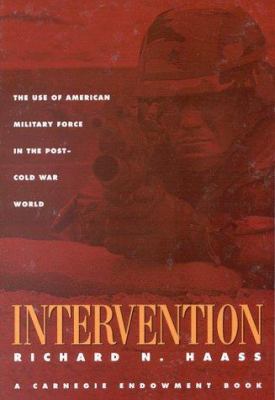
Book
|
Intervention : the use of American military force in the post-Cold War world
Copies
16 Total copies, 16 Copies are in,
0 Copies are out.
Title
Intervention : the use of American military force in the post-Cold War world
Call No
UA23
Authors
Subjects
World politics--1989-
Politique mondiale--1989-
Military policy.
Military relations.
World politics.
Militaire interventie.
Internationale politiek.
Militärische Intervention
Militärpolitik
Intervention (International law)
World politics--1989-
United States--Military relations.
United States--Military policy.
États-Unis--Relations militaires avec l'étranger.
États-Unis--Politique militaire.
United States.
USA
USA.
United States--Military relations--Foreign countries.
United States--Military relations--Foreign countries.
Politique mondiale--1989-
Military policy.
Military relations.
World politics.
Militaire interventie.
Internationale politiek.
Militärische Intervention
Militärpolitik
Intervention (International law)
World politics--1989-
United States--Military relations.
United States--Military policy.
États-Unis--Relations militaires avec l'étranger.
États-Unis--Politique militaire.
United States.
USA
USA.
United States--Military relations--Foreign countries.
United States--Military relations--Foreign countries.
Language
English
Published
Washington, DC : Carnegie Endowment for International Peace, ©1994.
Publication Desc
x, 258 pages ;
ISBN
0870030574
(pbk.)
LCCN
94029672
Dimensions
23 cm









